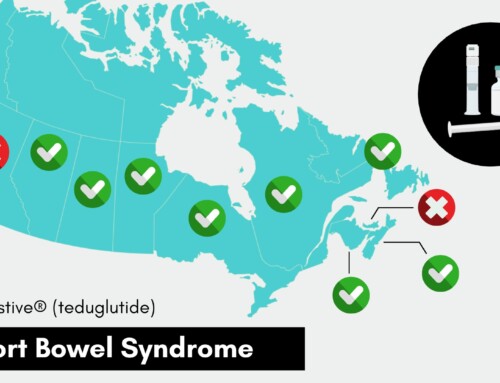
-
New! Read our positive feedback to The Honourable Jean-Yves Duclos, P.C., M.P., Minister of Health, Government of Canada on his recent decision regarding the PMPRB sent on 2023-02-28.
- Read our positive feedback to The Honourable Jean-Yves Duclos, P.C., M.P., Minister of Health, Government of Canada on his recent decision regarding the PMPRB sent on 2022-04-20.
- Read our feedback to the PMPRB on the Change to the Definition of Gap medicines, the references to the comparator countries and the international price tests for Grandfathered medicines and their line extensions sent on 2021-08-31
- Read the letter we sent to the Prime Minister of Canada and other government officials on 2021-06-16
- Read our feedback to the PMPRB Guideline Monitoring and Evaluation Plan (GMEP) 2021 sent on 2021-06-21
- Read our feedback to the PMPRB 2020 Draft Guidelines sent on 2020-08-04
- Read our feedback to the PMPRB 2019 Draft Guidelines, co-authored with the Alliance for Safe Biologic Medicines, sent on 2020-02-14
Want to know the basics about what the PMPRB is and how it affects medication regulation and access in Canada?
Watch These Short Videos
What is the PMPRB?
Price vs. Value
Patient Input and Drug Reviews
Drug Price Reviews in Canada
PMPRB and Lower Prices
PMPRB Impact on the Global Market
Basket of Comparator Countries
Medication Supply Chain Video
Changes to Medicine Access in 2021
The Gastrointestinal Society released the Patented Medicine Prices Review Board: Report on the Changes and Their Impact on Canadians, the (“PMPRB Impact Report”) detailing how our access to medicines are changing as of January 1, 2021.
Updates
On April 14, 2022, the Honourable Jean-Yves Duclos, Minister of Health, issued a statement announcing the Government’s intention related to the coming-into-force of the Amendments to the Patented Medicine Prices Review Board (PMPRB) Regulations. The Minister’s statement advised that Health Canada will proceed with changing the new basket of comparator countries and will not proceed with any of the other amendments. This is what patient groups have been advocating for since 2018. This is a great decision and ensures that patients will continue to have access to innovative and lifesaving therapies. Details will be published in the Canada Gazette in late spring 2022.
On December 17, 2021, the PMPRB announced that it will discontinue the changes they have proposed in the July 15, 2021 Notice and Comment. Then, on December 23, 2021, the federal Minister of Health released a statement delaying the implementation of the PMPRB changes from January 1, 2022 to July 1, 2022. This announcement marks it as the fourth delay of the amendments.
On June 29, 2021, Health Canada has, again, postponed the implementation date of the new PMPRB changes from July 1, 2021 to January 1, 2022 in recognition of the ongoing challenges brought by the COVID-19 pandemic. Details will be published in the Canada Gazette, Part II on July 21, 2021. Contact the federal government now to share how important access to new and lifesaving medicines are for you, your loved ones, and fellow Canadians by contacting your MP.
Canada is the only country in the world with a regulator that caps patented medicine prices but it claims to adopt best practices used in other developed countries by considering value and affordability and it does so under the Patented Medicine Prices Review Board (PMPRB). After the PMPRB sets a maximum price, Canada and its provinces and territories also have other bodies that further negotiate the price of a medicine lower.
Why does this matter to Canadians now?
 The PMPRB has been around since 1987, with guidelines as to how it calculates a maximum price. However, release of the final PMPRB Modernization Guidelines on October 23, 2020 has not given Canadians enough time to respond to the changes before the January 1, 2021 implementation date.
The PMPRB has been around since 1987, with guidelines as to how it calculates a maximum price. However, release of the final PMPRB Modernization Guidelines on October 23, 2020 has not given Canadians enough time to respond to the changes before the January 1, 2021 implementation date.
Experts in the Canadian healthcare system, including patient groups, say this “modernization” could seriously affect access to lifesaving and life-altering drugs. When the amount paid to the manufacturer for publicly-funded medications becomes so low, it might no longer be viable for the companies to sell their medicines in Canada. This includes both new drugs and existing drugs, which could be pulled from the Canadian market.
In the full report we explore the changes to the guidelines, provide background, and explain the potential effects of these changes. We hope you take the time to read about them now, before it’s too late. We identify the ways in which healthcare systems interact with our lives, as we use prescription medicines, medical devices, participate in clinical trials, and access patient support programs. We also provide real world examples to show the effects of these policies on Canadians today.
The PMPRB guideline changes are generating a high level of uncertainty, which could jeopardize the launch of new medicines by significantly decreasing Canada’s attractiveness as a priority jurisdiction in which to seek regulatory approval to sell their new medicines. The changes can also affect existing medications for which prices go so low that, suddenly, they are no longer available to Canadians. Pricing uncertainty will impact drug manufacturers, but this concern reaches right down to the end user of medications. We foresee significant delays for Canadians to access important new therapies that are lifesaving or life-altering. A decision not to launch a product in Canada would eliminate access for all patients, even those who have private insurance for drugs.
The PMPRB is also executing this regulatory overhaul as our healthcare systems continue to prioritize responding to the challenges of the COVID-19 pandemic. This is not the time!
Breaking News
On October 1, 2020, the US released the Final Rule and guidance documents on how the country will import prescription drugs from Canada.1 However, on November 27, 2020, the federal Minister of Health blocked US President Trump’s executive order by signing the Interim Order Respecting Drug Shortages (Safeguarding the Drug Supply).2
According to PDCI Market Access, the pharmaceutical industry estimates that the impact of the PMPRB changes will result to $19.8 billion in savings over a 10-year period from the new basket of comparator countries alone. This is a difference of $13.6 billion from PMPRB’s claims of $6.2 billion in savings.
Furthermore, on November 16, 2020 the House of Commons Standing Committee on Health (HESA) initiated a series of meetings with stakeholders, including PMPRB staff and Board, to investigate the new PMPRB guidelines.3
As we near the implementation deadline on January 1, 2021, Canadians and stakeholders in the healthcare systems continue to express their concerns to the federal government. More updates from the GI Society will follow as additional changes will likely develop.






